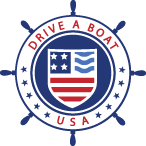Marine Turtle Protection Laws in Florida
There are 5 species of marine turtles in Florida: loggerhead, green, leatherback, Kemp’s ridley and hawksbill. All 5 species are listed as either endangered or threatened. As such, they and their habitats are protected by federal and state law. Discover what the law says about protecting sea turtles, and what boaters can do to help!
The Marine Turtle Protection Act
Sea turtles are protected under the Federal Endangered Species Act and Florida’s Marine Turtle Protection Act. According to Florida law, no one may harass, disturb, take, move, sell, damage, destroy, injure or kill any marine turtle, hatchling, egg or nest. This legal protection also forbids anyone from modifying or degrading sea turtle habitats in such a way that their breeding, feeding or sheltering behavior is altered.
Anyone who wants to conduct scientific, conservation or educational activities that directly involve marine turtles, hatchlings, eggs or nests must obtain specific authorization from the Florida Fish and Wildlife Commission (FWC).
Sea turtle protection while boating
Unfortunately, boaters often end up unintentionally harming sea turtles. Like manatees, sea turtles are often victims of accidental boat strikes. They also rely on similar habitats and food sources, such as seagrass, which are often damaged by propellers and accidental grounding in shallow water. Sea turtles also tend to mistake the trash left behind by boaters for food and ingest it, resulting in death.
Fortunately, there are steps vessel operators can take to protect sea turtles while boating:
- Have someone keep a lookout for nearby sea turtles so that you can give them a wide berth
- Wear polarized sunglasses to reduce glare and help you see turtles under the water
- Follow posted speed limits and boat slowly near known sea turtle habitats
- Learn the meanings of buoys and markers and follow them to avoid damaging or intruding on sea turtle habitats
- Avoid littering and dispose of fishing hooks and line properly—sea turtles may eat the trash or become entangled
- Don’t feed sea turtles—it encourages them to approach humans in crowded areas, putting them in danger
Call the FWC Wildlife Alert Hotline to report accidental collisions, entangled, injured or dead marine turtles, hatchlings in distress or harassment.
Learn about marine wildlife protection with Drive a Boat USA
In an effort to prevent boating accidents involving threatened or endangered marine wildlife, the FWC is adding questions about manatee and sea turtle protection to the Florida boat exam. Individuals who take a boating safety course will learn about protecting these creatures in addition to receiving information about Florida boating laws and safety practices that all vessel operators need to know. Take the course online with Drive a Boat USA!

